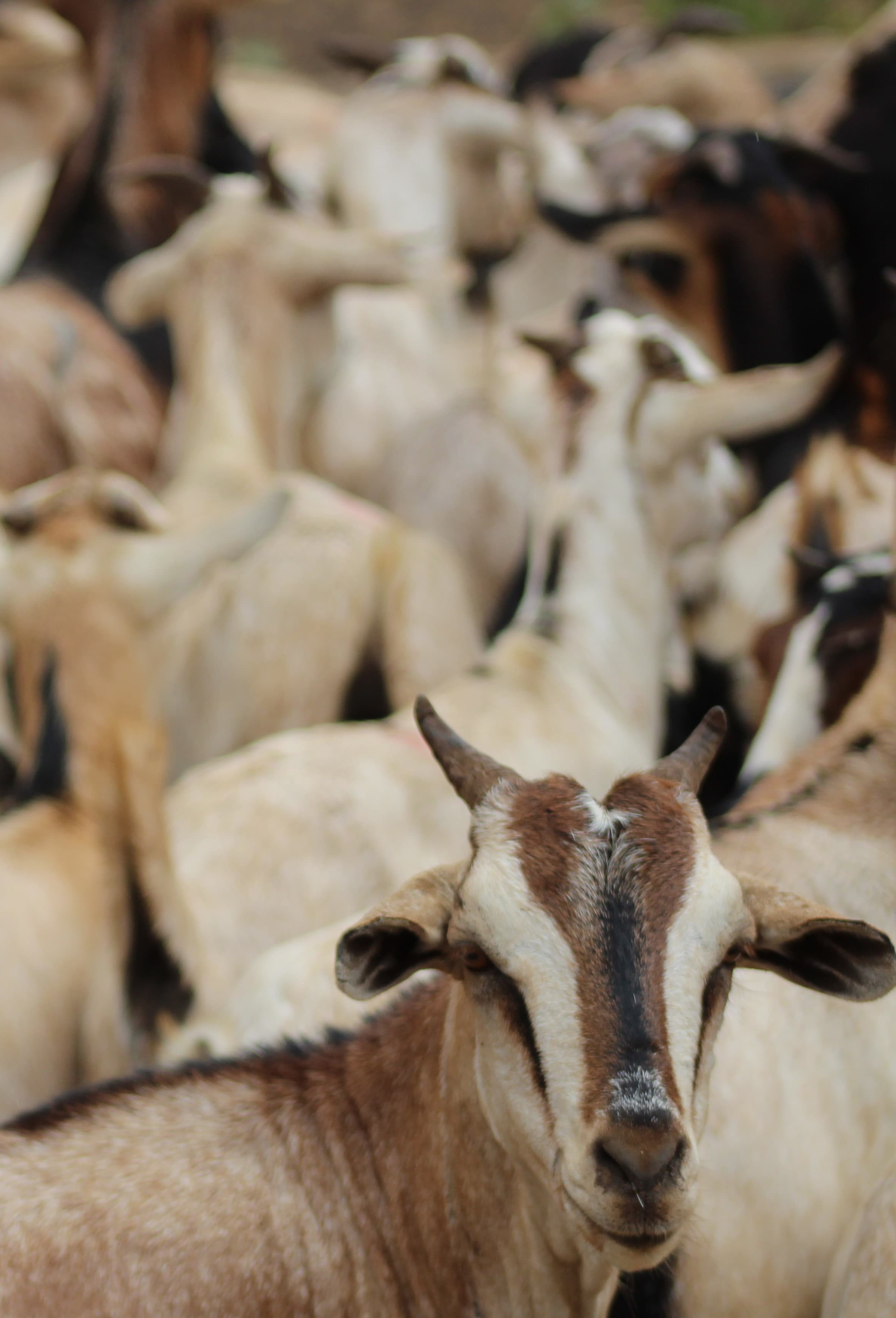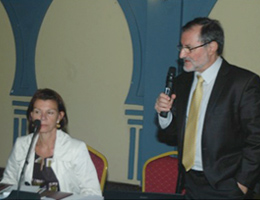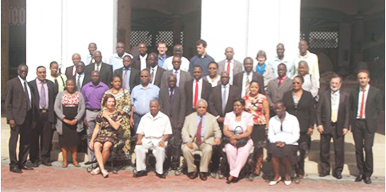


IAEA, FAO and OIE convened a meeting to share experiences and knowledge in the prevention and control of the small ruminants disease PPR in the SADC Region. Experts from the three organisations including OIE-FAO Reference Laboratory for PPR, CIRAD and the wildlife expert from the Royal Veterinary College had fruitful discussions with participants representing OIE Delegates, Chief Veterinary Officers, Heads of Central Veterinary Laboratories, epidemiologists, SADC Secretariat and vaccine specialists from AU-PANVAC.
Dr Joseph Domenech (standing) explaining the approach to a Global PPR Control Strategy and Dr Susanne Munstermann from OIE. All pictures © Gervas Luganda 2013, unless mentioned otherwise.
The importance of the meeting was emphasised by the Representative of the Ministry of Livestock and Fisheries of Tanzania who said that Tanzania expected to learn a lot from the meeting and that its outcomes will assist them to refine their national control strategy. Sessions 1 and 2 covered information on the disease with lessons learnt from the past and presentations on the current disease statuses by the Democratic Republic of Congo and Tanzania. The cross border collaboration between Angola, DRC and Zambia on PPR control clearly demonstrated the necessity for a regional approach. Specific thematic presentations covered wildlife, laboratory diagnostic and epidemiology, socio-economics and vaccines. Session 3 described the Global Control Strategy for PPR, currently under preparation by the GF-TADs Working Group on PPR. The SADC Regional PPR Strategy and its components were presented and this provided for a good entry point in pointing out the necessity to develop regional and national roadmaps. An evaluation of the cost of such national and regional strategies should also be made and once the Global strategy is developed, the SADC one will be reviewed with the view to harmonise and close the gaps identified. The development of the Global PPR Control Strategy will reflect the regional experiences and any new scientific knowledge.
The countries in the SADC Region were divided into three risk levels being endemic (Tanzania, Democratic Republic of Congo and Angola), at high risk (Zambia, Malawi and Mozambique) and the remaining countries as free from the diseases.
The Workshop was concluded by working group discussions on issues like surveillance; control strategies and monitoring and assessment tools and conclusions were formulated and endorsed by the meeting.
All pictures © Gervas Luganda 2013, unless mentioned otherwise.


